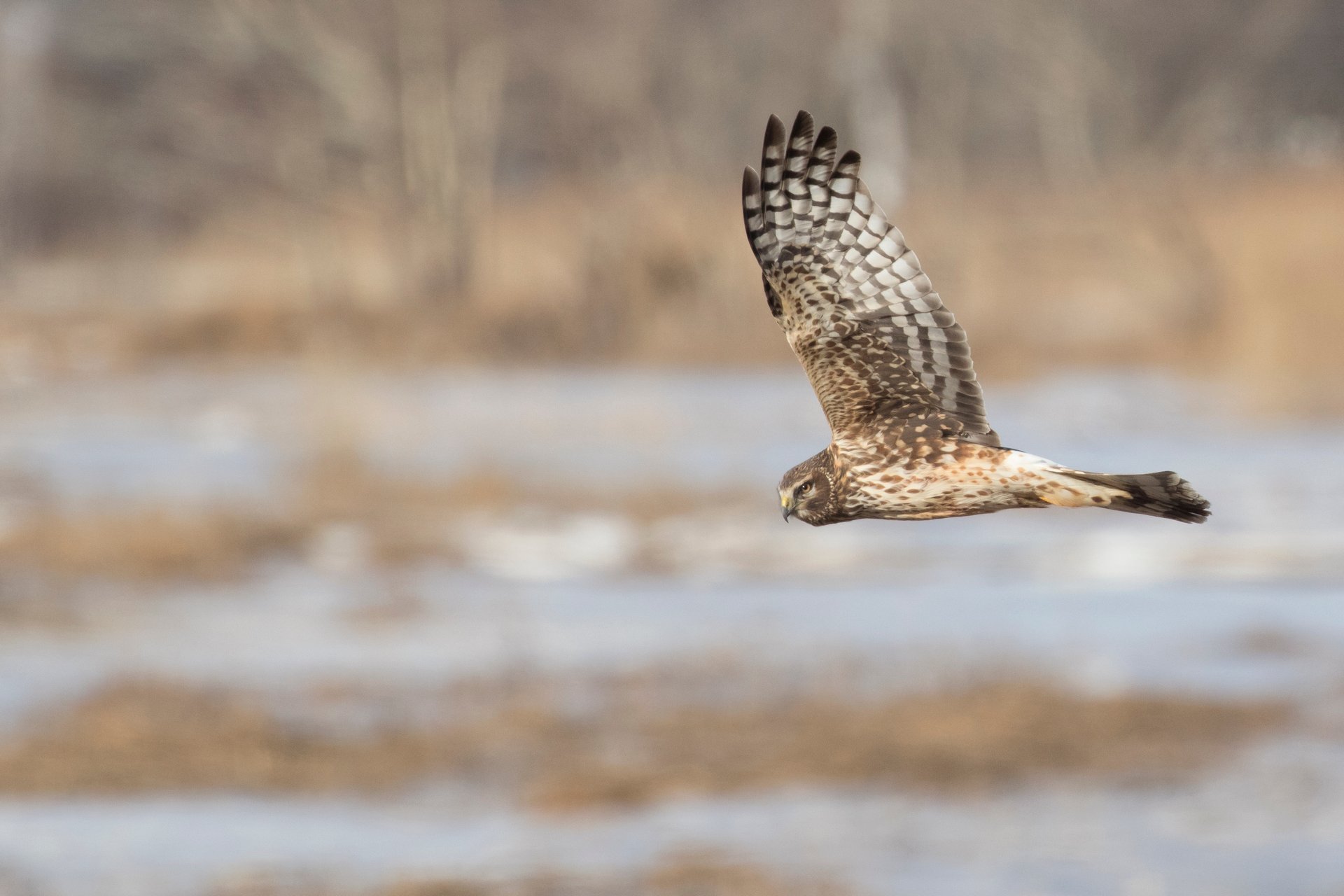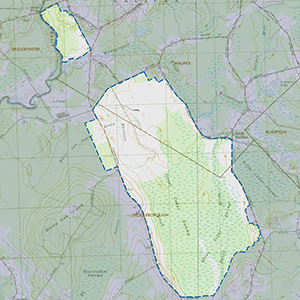Important Bird Area Sites in Massachusetts
Important Bird Area: Cumberland Farms
Site Summary
Nominated By
Kathleen Anderson
Size
2,000 acres
Towns and Counties
Middleboro, Halifax; Plymouth
Ownership
private
Major Habitats
cultural grassland, cultivated field, emergent freshwater wetland, palustrine wooded swamp, shrub-scrub wetland, lake/pond,river/stream
Land Use
hunting & fishing, agriculture/livestock, undeveloped
Serious Threats
pesticides, excessive soil erosion/degradation, disturbance to birds or habitat, hydrologic changes
Minor Threats
invasive or non-native plants, recreational development/overuse
IBA Criteria
- Category 1: Sites containing assemblages of species characteristic of a representative, rare, threatened, or unique habitat within the state or region.
- Category 2: Shorebirds: The site regularly supports 1,000 or more shorebirds at one time at a coastal site, during some part of the year, or a significant concentration of shorebirds at one time at a nontidal site. The designation "shorebirds" includes birds such as plovers, sandpipers, snipe, woodcocks, and phalaropes.
- Category 4: Waterfowl: The site regularly supports 500 or more waterfowl at any one time. The designation "waterfowl" includes birds such as loons, grebes, cormorants, geese, ducks, coots, and moorhens.
Site Description
Created illegally by clear-cutting and draining the Great Cedar Swamp, Cumberland Farms Company inadvertently created 1,500 acres of open land. The land has been under different management schemes including hay, sod, and corn production, and sometimes the area is left fallow in weeds. Each of these uses has attracted concentrations of a variety of species, sometimes migrant shorebirds, always wintering raptors and migrant waterfowl and some grassland breeding birds. It is the largest open grassland in southeastern Massachusetts.
Current Conservation Status
A great threat to this area is the unpredictability of the landowners and their future plans for this large and ornithologically important area. In the past the area was the site of a major airport development proposal , but this failed because of the soil structure. The owners are presently selling off all developable lots along the perimeter; also, there is presently a proposal to expand the Oak Point senior housing development onto this land. Although the Massachusetts Division of Fisheries and Wildlife is currently attempting to acquire the land, the asking price so high and unreasonable that the state cannot, within state regulations for land acquisition, meet the price.
Ornithological Significance
Depending on the management scheme, the area has attracted concentrations of a variety of species, migrant shorebirds, wintering raptors, and migrant waterfowl (in the several thousands) annually since 1972, and some grassland breeding birds. The area contains at least six state listed species, and six species of high conservation priority, including; American Kestrel, 2 pair; Northern Bobwhite, 9 (1995); American Woodcock and Alder Flycatcher, over 2 pair, annually; Bobolink, 150 (1995); Eastern Meadowlark, 52 (1995). The exact composition of birds depends on the management scheme - each scheme brings a different consort of species.
Other Flora or Fauna of Significance
Large deer, coyote, woodchuck, muskrat, and probably otter and fisher populations. Otters, fishers, and bobcats have been found on adjacent property. During butterfly and herp Atlas projects, many records of these taxa were documented on Cumberland Farms property.
Data Sources
Anderson, Kathleen S. 1996. Cumberland Farms Fields. Bird Observer. 24 (1) 4-16.
Records from Bird Observer of Eastern Massachusetts, 1994-2000.
P. Vickery, P. Dunwiddie. Grasslands of Northeastern North America. Mass. Audubon Soc, 1997.
Jones, Andrea (personal records.)
Anderson, Kathleen (personal records)




